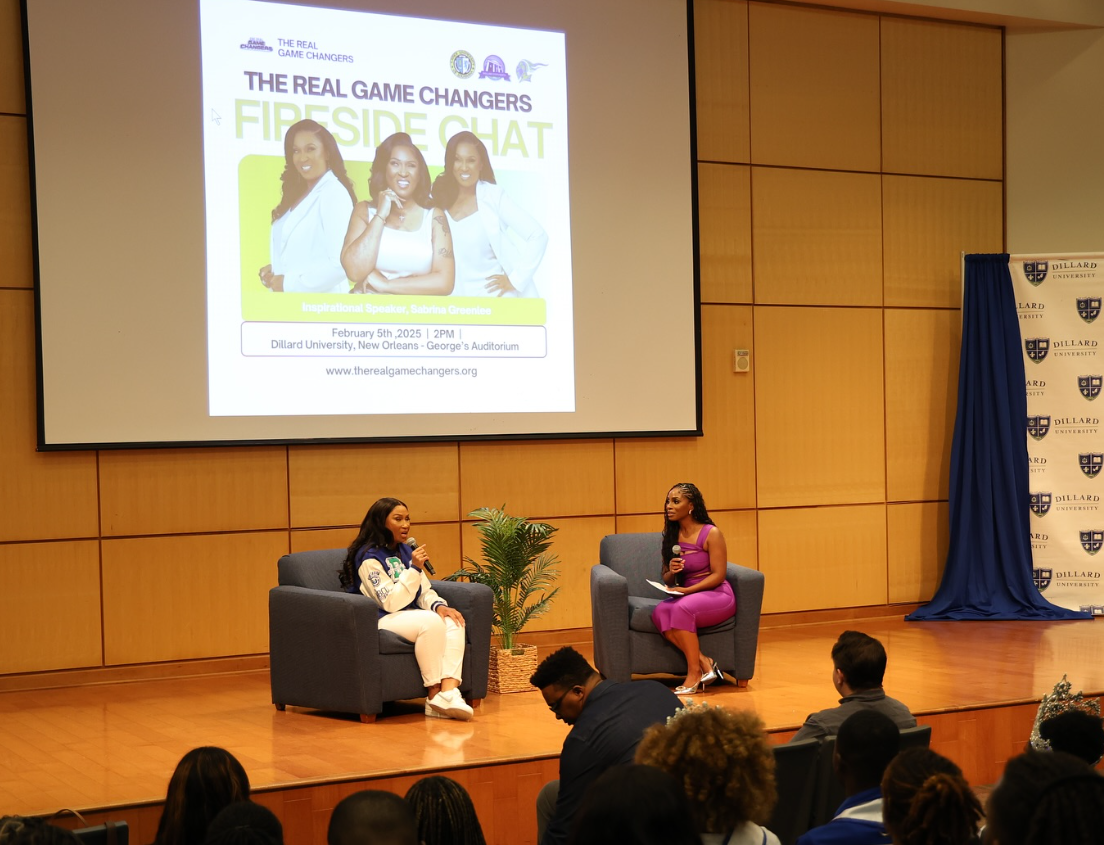NEW ORLEANS (Nov. 9, 2017) – The crowd for last Friday’s “business etiquette” dinner and dialogue event in the Ray Charles Foundation Room exceeded the 20 planned.
About 35 students packed into the room to dine on chef Toya Boudy’s crawfish bisque and banana/rum cinnamon dessert while listening to tips about place settings and professional socializing
Sponsored by the Ray Charles Program in African American Material Culture and the Center for Career and Professional Development, the event featured Boudy and etiquette expert Carolyn Shelton, both of whom gave personal examples of how etiquette has been important to their success. Both emphasized the need to be polished in all industries, not just corporate but entertainment careers as well.
The event was basically a class that offered students the opportunity to learn professional dining etiquette tips and experience fine dining. Diagrams of place settings were provided, and a discussion held about use of utensils. Throughout Boudy and Shelton shared anecdotes about themselves.
Boudy, born in New Orleans, recalls being the “bad girl” from an early age: “There was not a summer from my childhood, besides two, that I can’t remember being punished,” she said, but she loved cooking from an early age. She said other passions, poetry and motivational speaking, are what first gave her a name around the city.
She has participated in televised cooking competitions, having been named “Best Home Cook” by Hallmark’s Home and Family and then competing as a professional chef in other cooking shows on networks such as Food Network, TLC and “Guy's Grocery Games,” representing the city of New Orleans.
Her oldest daughter, Heaven, is a DU freshman.
Shelton, a Houston native, said she got her start on Continental Airlines as a flight attendant before getting a contract with major corporations, such as Xerox, for her etiquette program “From College to Corporate,” which allowed her to travel to HBCUs around the country and teach her very own etiquette course.
She said knowing proper manners and etiquette is vital for up-and-coming young black professionals. She credits her upbringing and her grandmother, who often “chastised us for having bad manners,” she said.
The idea for the dinner came from Carretta Cooke, director of the career development center, who brought the two featured guests together for the “Life After Dillard” program.
(Cayman Bentley contributed to this report.)





























